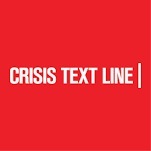
Learn the Warning Signs:
Talking about:
Wanting to die
Great guilt or shame
Being a burden to others
Feeling:
Empty, hopeless, trapped, or having no reason to live
Extremely sad, more anxious, agitated, or full of rage
Unbearable emotional or physical pain
Changing behavior, such as:
Making a plan or researching ways to die
Withdrawing from friends, saying good bye, giving away important items, or making a will
Taking dangerous risks such as driving extremely fast
Displaying extreme mood swings
Eating or sleeping more or less
Using drugs or alcohol more often
If these warning signs apply to you or someone you know, get help as soon as possible, particularly if the behavior is new or has increased recently.
Mental Healthcare Provider Training and Presentations:
C.A.L.M. for Providers: Environmental safety measures are key in creating safety from suicide. In this session, mental health providers will increase their skills in assessing for access to lethal means and joining with clients in how to plan for safety. Particular attention is paid to navigating firearm safety.
Suicide Risk Assessment: The Columbia Suicide Severity Rating Scale (CSSRS) is an evidence-based suicide screening tool that is considered the “gold standard” in risk assessment. This training session focuses on building competence and confidence in assessing for suicide risk. The training provides participants with the structure, scoring of the CSSRS, practice utilizing the scale, and examples of next steps for suicide risk management. There is no mental health provider requirement to use the CSSRS. It is a tool for the community at large.
Managing Suicide Risk in Substance Use Treatment Settings: This presentation was adapted from SAMHSA’s Treatment Improvement Protocol (TIP 50). It is geared toward substance use treatment professionals. Participants will learn about the link between substance use and suicide, gain insight into their personal attitudes about suicide, and learn warning signs for suicide risk.
ASIST (Applied Suicide Intervention Skills Training): This is a two-day workshop for learning suicide intervention skills. The focus is on learning to identify suicide risks and developing a plan with the person at risk to stay safe for now. Participants are taught to identify possible warning signs for suicide including changes in behavior such as isolation, withdrawal, discussing suicide, increase in substance use, aggressiveness, and feelings of hopelessness or pain. Participants are then taught to identify a plan that will keep the person safe which often includes helping the person seek longer-term support or treatment.
Contact us or sign up for the newsletter to find a training near you.
Resources:
Find your Community Mental Health Center using the CMHCK map
Create a Safety Plan


Lifeline Chat is also available 24/7 at CrisisChat.org
